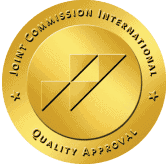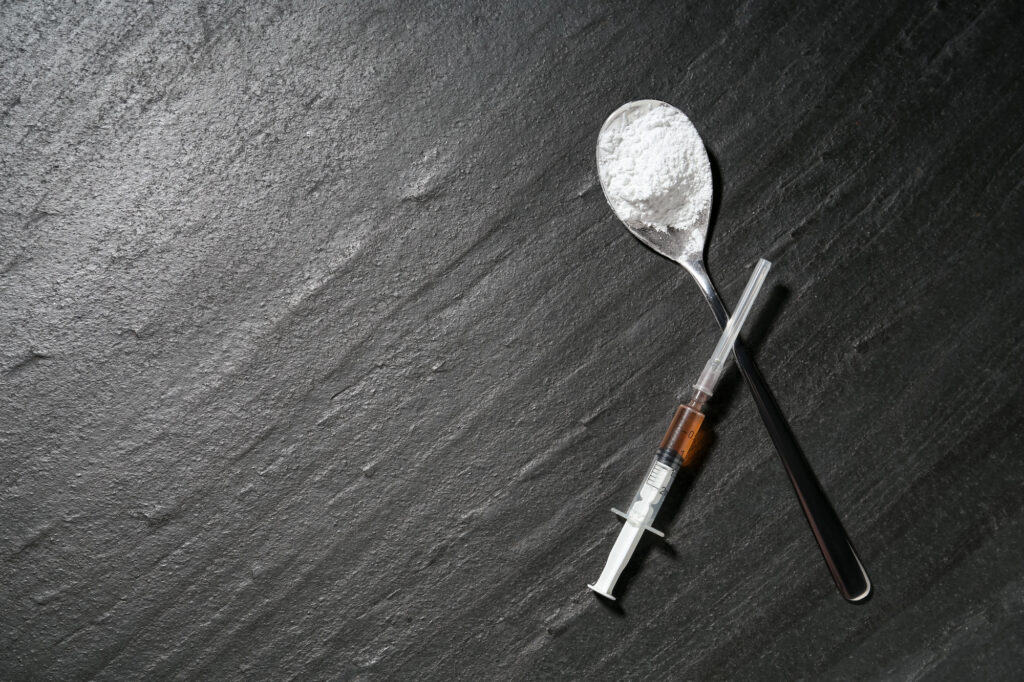The facts paint a serious picture: heroin messes with the part of your brain that controls hunger, making it so that users often skip meals or don’t eat at all. This loss of appetite, along with the chaotic lifestyle that comes with addiction, leads to many health problems that go beyond just weight.
What’s coming next will challenge what you might think about heroin and weight loss. You’ll see why the effects of this drug on your body are one of the most harmful side effects of addiction, not a way to lose weight.
How Heroin Affects Body Weight
Heroin’s impact on body weight occurs through complex interactions with your brain’s hunger and metabolic systems. The weight loss you observe in heroin users stems from multiple biological and behavioral mechanisms that disrupt normal eating patterns and nutrient processing.
The Science Behind Heroin-Induced Weight Loss
Heroin affects a part of your brain called the hypothalamus, which controls hunger and feelings of fullness. When someone uses heroin, it connects to special receptors in the brain and changes the signals that tell you when to eat.
This drug makes your brain release a chemical called dopamine, which tricks your body into ignoring hunger. That’s why people using heroin often lose weight; it alters how their brain reacts to hunger signals.
Studies show that opioids like heroin mess with hormones in your body, including testosterone and growth hormones. These changes can lead to muscle loss and less fat being stored. Over time, heroin disrupts important body processes that help manage weight.
Appetite Suppression and Metabolic Changes
Heroin is a strong appetite suppressant, meaning it makes you eat much less or not at all. This effect is one of the first signs of heroin use and lasts throughout the addiction.
When someone uses heroin, their digestive system slows down, making it hard for the body to absorb nutrients. Even if you eat, your body struggles to take in the vitamins, minerals, and calories it needs to function properly. This leads to a lack of nutrition and faster weight loss.
Heroin also changes how your body uses energy. It affects how you feel temperature, breathe, and your overall energy levels. While it doesn’t directly burn fat, it makes your body use more energy, combined with eating less, which causes rapid weight loss in users.
Long-term use of heroin can harm your liver and kidneys, which are important for processing food and nutrients. Damage to these organs can make it difficult to keep a healthy weight, further complicating fluid balance and metabolism. This is why long-term users often see significant weight loss.
Addiction can also disrupt sleep patterns, which adds to these metabolic changes. Poor sleep affects hormones that manage hunger and fullness, making it harder to eat normally or realize when your body needs food.
Why Heroin Users Experience Weight Loss
Understanding why heroin makes you lose weight involves looking at how the drug affects your body and the unhealthy habits that come with addiction. Weight loss happens in two main ways that lead to serious health problems.
Direct Effects on the Brain and Body
Heroin targets special parts of your brain, especially in an area that controls hunger. This interaction makes you feel less hungry, causing you to eat less or skip meals altogether. The drug changes the chemicals in your brain that influence your eating, making food feel unimportant or even unappealing.
Heroin also affects how your body uses energy. It can change your body temperature and how many calories you burn, which may lead you to lose more weight. Studies show that people who use heroin regularly tend to have less body fat than those who don’t.
The drug slows down your digestion, making it harder for your body to absorb nutrients from the food you do eat. As a result, you may not get enough vitamins and minerals, leading to malnutrition. Heroin can also lower hormone levels, like testosterone, which reduces muscle mass and your ability to store fat.
Lifestyle Changes and Self-Care Neglect
Addiction shifts your priorities, often pushing important needs like eating aside. Money spent on drugs can limit your access to healthy food, while the chaos of using heroin disrupts regular meal times.
You might not take care of personal hygiene or health, making nutritional problems worse. The stress of addiction can affect your sleep, further ruining your appetite and metabolism. Emotional struggles from addiction can lead to depression and anxiety, making you lose interest in food entirely.
Physical problems, such as nausea, vomiting, and constipation, often caused by heroin, can make eating uncomfortable or even impossible. This combination of eating less, poor nutrient absorption, and increased energy needs creates a harmful cycle of malnutrition and rapid weight loss.
Health Risks of Heroin-Related Weight Loss
Using heroin can lead to quick weight loss, which brings serious health issues that go beyond just looking different. These problems can worsen rapidly as your body stops receiving the necessary nutrients.
Malnutrition and Weak Immune System
Heroin users often don’t eat enough because the drug makes them lose their appetite. Without enough food, your body misses out on important vitamins and nutrients very quickly, which can hurt your metabolism.
When you don’t get proper nutrition, your immune system becomes weaker. Studies show that heroin users who are malnourished have fewer white blood cells and produce fewer antibodies. This makes them 3-4 times more likely to contract infections, such as pneumonia or serious bacterial infections that require urgent medical attention.
Your body starts using muscle for energy, making you lack protein, which is crucial for immune cells and healing. Research shows that long-term users often have protein levels that are 40-50% lower than normal, making it really hard for them to fight off illness.
Electrolyte imbalances are also common due to poor eating habits and messed-up digestion. Low levels of sodium, potassium, and magnesium can lead to heart problems, muscle weakness, and seizures. These issues get worse with rapid weight loss.
Long-Term Physical Effects
Long-term heroin use can permanently change your brain, making it hard for your body to manage important functions. It damages the hypothalamus, which affects hormone production that helps control metabolism and weight.
As malnutrition gets worse, your organs start to fail. Your liver can’t process food and toxins as well, and kidney problems can occur, making it hard for your body to use any nutrition you do get. Studies show that 60-70% of chronic users start to have liver problems within 2-3 years.
Not getting enough calcium and hormonal issues can lead to weak bones. Heroin users can lose bone mass 2-3 times faster than usual, increasing the chance of fractures by up to 400%. This bone loss might not heal even after they stop using.
Serious heart problems can arise as losing weight affects heart muscle. Your heart becomes weaker, and blood pressure can rise, increasing the risk of strokes. The combination of not eating enough and heroin’s direct effects raises the risk of sudden heart problems significantly.
Additionally, muscle loss goes beyond weight loss and includes the muscles needed for breathing and heart function, making it hard to do everyday activities. Regaining lost muscle can take a long time, even with good nutrition and medical help during treatment.
Weight Changes During Recovery
Recovering from heroin addiction can lead to big changes in your body weight and eating habits. Knowing what to expect can help you manage this process better.
What to Expect During Withdrawal
When you stop using heroin, your appetite comes back strongly. This happens because your brain’s signals for hunger start working again. You might find yourself craving a lot of food, especially sweets and high-calorie snacks. This hunger is your body’s way of trying to fix the nutritional gaps caused by addiction.
In the first weeks of recovery, you might face challenges with eating due to physical withdrawal symptoms. Nausea and vomiting can make it hard to eat, even when you’re hungry. Your stomach needs time to adjust after being affected by heroin for so long.
Feelings like anxiety and depression can also change how you eat. Many people start eating more as a way to cope and replace the happiness they used to get from heroin. This can lead to gaining weight quickly, often more than the weight lost during addiction.
Not getting enough sleep during withdrawal complicates things even more. Poor sleep can mess with hormones that signal when you’re hungry or full. As a result, you might eat more than what your body really needs.
Healthy Weight Restoration Strategies
Learning about nutrition is key to restoring a healthy weight during recovery. Working with a registered dietitian can teach you about balanced meals and portion sizes. Aim to eat foods rich in nutrients, like lean proteins, whole grains, fruits, and vegetables to help replenish your body.
It’s important to regularly check in with healthcare providers during this process. They will monitor your health to catch any deficiencies and adjust your recovery plan as needed.
Increasing your calories gradually can help your stomach adjust and support consistent weight gain. Start with smaller, more frequent meals instead of big ones that might make you feel sick. Your digestive system needs time to handle normal amounts of food again.
Adding physical activity is also beneficial for healthy weight gain and rebuilding muscle you may have lost. Start with easy exercises like walking or stretching, then slowly increase the intensity as you get stronger. Exercise can also improve your mood and sleep, helping your recovery.
Support programs that focus on both addiction and nutrition can offer great care during recovery. These programs often include group therapy sessions that promote healthy eating, cooking classes, and support from others facing similar challenges. Combining emotional support with nutrition education greatly helps long-term recovery.
Learning to change your behavior around food is important too. Recognizing when you eat for emotional reasons can help you find better ways to cope. Mindful eating practices can help you reconnect with your natural hunger and fullness signals that heroin affected.
Getting Help for Heroin Addiction
Recovery from heroin addiction requires immediate professional intervention to address both the dangerous weight loss and the underlying substance abuse disorder. You cannot overcome heroin addiction alone, and the severe nutritional deficiencies discussed in previous sections make professional medical support essential for your survival and recovery.
Medical detoxification programs provide the safest approach to begin recovery. These programs monitor your vital signs continuously while managing withdrawal symptoms that can be life-threatening. Medical professionals administer medications like methadone or buprenorphine to reduce cravings and stabilize your system. During this phase, you’ll receive intravenous nutrition therapy to correct electrolyte imbalances and restore essential vitamins your body desperately needs.
Inpatient treatment offers 24-hour care for 30 to 90 days, combining medical supervision with counseling services. Statistics show that individuals who complete inpatient programs have a higher success rate compared to those who attempt outpatient treatment initially. These facilities provide structured meal plans designed by registered dietitians to rebuild your strength and restore healthy weight gradually.
Outpatient treatment options include:
- Intensive outpatient programs meeting 3-5 times per week
- Medication-assisted treatment combining counseling with prescription medications
- Support group meetings like Narcotics Anonymous
- Individual therapy sessions focusing on addiction triggers
- Nutritional counseling to establish healthy eating patterns
Mental health support addresses the psychological factors that contribute to both addiction and eating disorders. Therapists use cognitive-behavioral therapy to help you develop healthy coping mechanisms that don’t involve substances. Many people discover that understanding why heroin makes you lose weight helps them recognize the serious health consequences they’ve experienced.
Take the First Step Toward Healing
You may wonder, does heroin make you lose weight? While it can cause dramatic weight changes, the real concern is the damage heroin does to your overall health and quality of life. Lasting recovery means more than just gaining back physical strength—it’s about restoring hope and building a future free from addiction. At Assure Recovery, we’re ready to walk with you through that journey. Call 833-530-0291 today to take the first step.
FAQs
Understanding the complexities of heroin’s effects on weight and recovery raises important questions for users and their loved ones. These frequently asked questions address critical concerns about weight changes during recovery and provide essential safety information.
Not always. Many health conditions can cause sudden or ongoing weight loss. However, when combined with other symptoms—like changes in behavior, mood, or energy—unexplained weight loss can be a warning sign of heroin use.
Yes. Heroin can alter the way your body processes food and energy, which can lead to rapid weight changes. Combined with poor nutrition and appetite loss, this often results in unhealthy weight loss.
People struggling with heroin use may also face weakened immunity, digestive problems, muscle loss, and vitamin deficiencies—all of which can make the body more vulnerable to illness.


